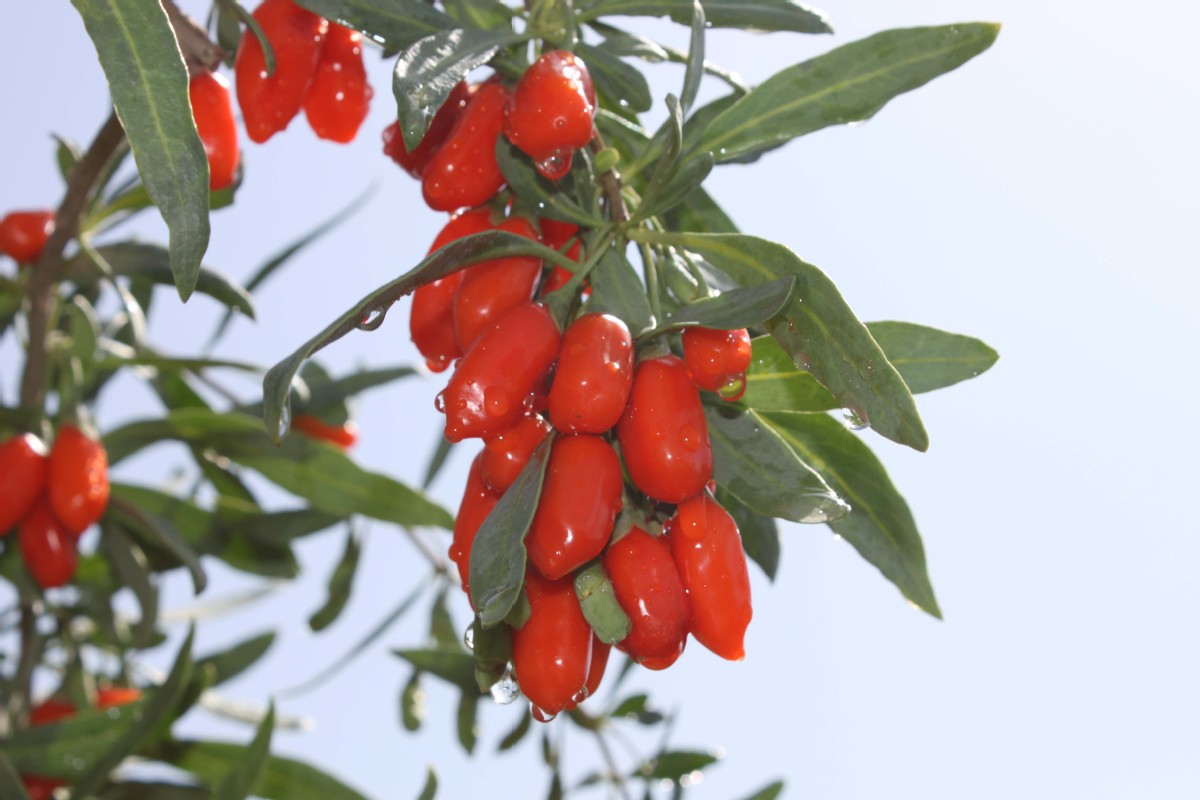I'm going to go on and on about goji berries


One of the pleasant aspects of working at China Daily in New York is sampling some of the delicacies that pop up in the office, either when staffers return from China or when the goodies are cooked right here.
There are the annual holiday servings of baozi and jiaozi and various treats containing bean paste. They all have unique tastes, and some are very sweet and high in calories. There is something comforting about the fact that China still boldly makes treats without regard to sugar and caloric content.
The snacks also usually come in colorful, elaborate wrappers, which to me means that if the makers went through the trouble of packaging them that nicely, they must taste pretty good.
Recently I got to try something new: goji berries, also known as wolfberries, along with cookie-type treats based on the bright fruit.
Xu He, one of China Daily's website editors currently working in New York, gave me and other colleagues each a plastic, octagonal jar filled with probably a month's supply of goji berries. I plowed through almost the entire bottle in a few days.
But Xu He told me not to eat more than 15 a day. She says they can "heat you up".
I told her they reminded me of raisins, or at least orange-reddish raisins. Goji berries are not as sweet and soft as raisins, and they have a dry, chewy texture.
Xu He had them shipped from her hometown, Yinchuan, the capital city of Northwest China's Ningxia Hui autonomous region. As she explained it, each province and region is promoting what it's known for to celebrate the 70th anniversary of the founding of the People's Republic of China.
Ningxia has been growing goji berries for thousands of years. The region has ample sunshine, a swing in temperatures between day and night, and unique water quality. The geographical conditions and climate provide an ideal environment for goji growing.
From January to May 2019, the export value of Ningxia goji berries reached 90.3 million yuan (about $12.8 million). Exports to the United States were worth 25.08 million yuan, up 57.4 percent.
"Goji has traditionally been regarded as a good health supplement by Chinese people. Almost everywhere we can see people carrying a glass of water boiled with dried goji berries," said Jia Dengqi, head of the Zhongning International Goji Trade Center in Zhongning county, in west central Ningxia.
"Demand for goji has been rising, and we have seen increasing numbers of buyers from overseas, including Japan, the United States and Europe," Jia said.
What's more intriguing than goji berries? Snacks made with them.
Xu He put out two bags of crunchy goji snacks in the office kitchen: "Bairuiyan Goji Leaf Tea Oatmeal Cakes" (green) and regular (red). I'll admit to "wolfing" down about half the bags.
They are really tasty, and naturally, came individually wrapped.
I am a goji berry convert now. I went on eBay and Amazon and ordered some.
Why am I going on about goji berries?
It turns out they have some pretty good health benefits: high levels of vitamins, minerals and antioxidants, the latter of which help fight cancer; they supposedly can help improve eyesight, reduce blood pressure, control cholesterol and improve circulation.
Goji berries have been commercially grown in the US for about two decades. In 2004, they were discovered growing wildly in Utah, and it turned out the discovery was near the site of an 1860s housing camp for Chinese workers who helped build the Transcontinental Railroad.
One other claim about goji berries is that they can increase your metabolism, which facilitates weight loss.
So could that explain why when I weighed myself after gorging on gojis I was 5 pounds lighter?
































